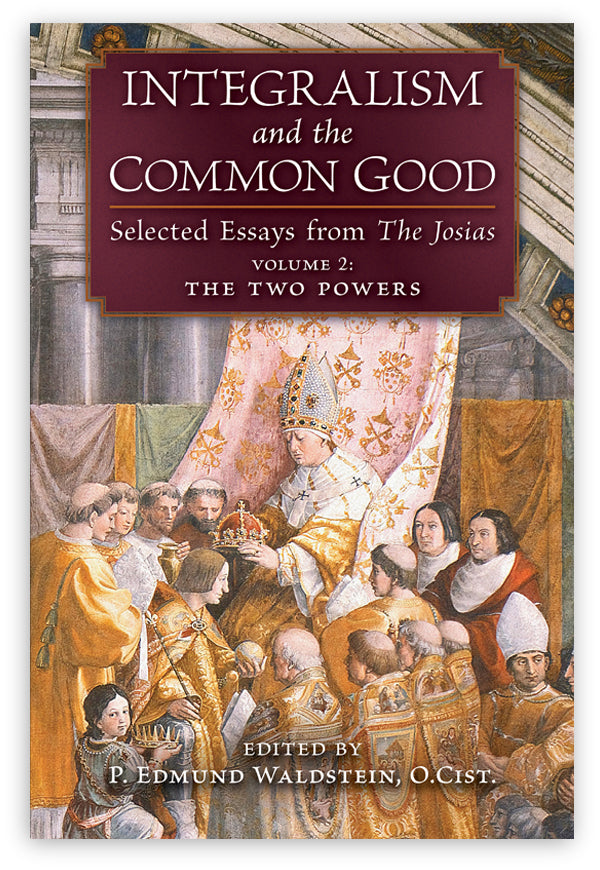Integralism and the Common Good (Volume 2)
Integralism and the Common Good (Volume 2)
Selected Essays from The Josias Volume 2: The Two Powers
Edited by P. Edmund Waldstein
400 pp
Couldn't load pickup availability
About the Book
If the Catholic Church can look with indifference on various political forms, it is not true conversely that political communities can look with indifference on various forms of “religion.” Like any part of creation, political life—established and willed by God for the sake of the temporal common good—has been wounded and is in need of healing by the grace of God, in whom all things subsist and to whom they are to be directed. The Church is no threat to temporal authorities but the bearer of a message of hope that they can become more fully themselves: she calls on them to recognize the truth about man that his Creator has written into his heart and the truth that has become man in the Word made flesh. Being both from God, the two powers—the temporal power of earthly rulers and the spiritual power of the Apostles and their successors—are meant to enter into an ordered relation, each having its own proper concern but capable of flourishing only in harmonious cooperation. This second volume of selected essays from The Josias is largely concerned with expounding the social duties of man toward the true religion: in short, the meaning of the Social Kingship of Christ. It pursues the implications of the Church’s demand for freedom of action (libertas ecclesiae) against the false principle of the separation of Church and state, and deftly responds to objections raised against this vision of “integralism.”
This first volume of essays treats the main questions of practical philosophy: the principles of human action and the common goods of natural human communities, ranging from the smallest and most fundamental (the household) to the greatest and most encompassing (the political community). The second volume will be devoted to the relations of those natural communities to the supernatural Kingdom established by Christ.
Praise
About the Author
View full details


